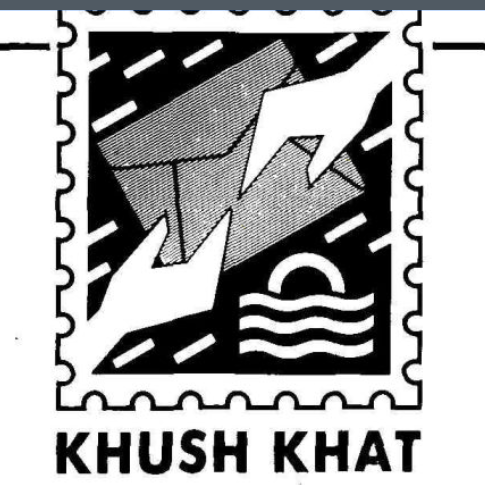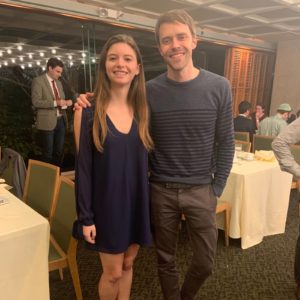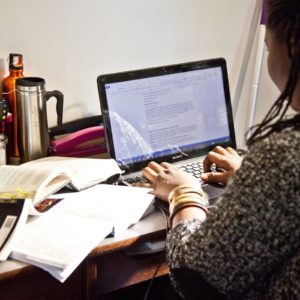While I’ve never taken online classes before at Princeton, this isn’t the first time where I’ve had to complete my semester at home. Last spring, I went home right after classes ended since all my final assignments were to be submitted online. Despite that working at home should have given me more time with fewer distractions, more often than not I found it incredibly difficult to focus on finishing the semester. With social-distance learning, I’ve been reflecting more on the problems I encountered last spring, and thought I’d share a few tips to help you stay focused during finals period, whether you’re working on those papers or studying for final exams!
Continue reading How to Stay Productive at Home During FinalsHow to Complete Research Assignments during Quarantine
This year, as we prepare to write our final papers in quarantine, it will be extra tough to locate the sources we need for our research. Without in-person access to campus libraries, this Dean’s Date will require some new strategies for accessing research materials. To help with this process, I’ve collected a few virtual research resources from my weeks of quarantine thesis work, as well as the beginnings of my Dean’s Date research (also check out Alec’s recent post for more tips):
Do not underestimate the library catalog. A lot of sources are available online, especially with the University’s new partnership with the HathiTrust Digital Library. Through this partnership, millions of scanned books have been made temporarily available to students—in addition to Princeton’s many existing online holdings. To see if a book is available online, just search for it in the Princeton library catalog. If you don’t see a digital edition listed, try clicking on a print edition and seeing if a scanned version is available through HathiTrust (if it is, there will be a link just below the book’s title and general information). You can also click the “Request” button under “Copies in the Library,” then “Help Me Get It” and a librarian will do their best to send you a digital copy—if it’s available—within a few days.

Graduate School Application Process (Part III): Interviewing and Decisions
April 15th is the universal deadline for committing to graduate programs across the country. So, just a few short weeks ago, my graduate school application process came to end when I decided to commit to attend the University of Wisconsin-Madison’s Psychology Ph.D. program. This decision was not an easy one by any means; there are so many factors to consider when choosing which program is the best fit. For me, the decision came down to thinking back to my experiences during all of my visiting/interview weekends.

During the interviews themselves, my mind was, understandably, primarily occupied with ensuring that I was putting my best foot forward and engaging intellectually with potential faculty advisers, as well as current graduate students, since I was hyper-aware that everyone in the program was evaluating me. However, the best advice I had gotten before going on my visits was that these weekends are as much about the program evaluating you as a candidate, as they are about you learning more about the program and determining if it is a good fit for you. So, I want to pass on that advice and highlight a few things that I found helpful to pay attention to during interview weekends that ultimately played into my final decision-making process.
Continue reading Graduate School Application Process (Part III): Interviewing and DecisionsDoing Research Projects in the Wake of COVID-19
Recently, we’ve all had to do our best to adapt our coursework, extracurriculars, and past times to a remote format. Some activities – like hands-on research in a lab – may be difficult, or even impossible, to do over Zoom. For those of you looking to fill the gap, hackathons may be the solution. Hackathons are short programming events designed for students to learn new skills, meet new people, develop solutions to everyday problems, and win prizes. And because of the COVID-19 situation, many hackathons are turning virtual.
To hear a little more about what exactly hackathons are and who they might be a good fit for, I interviewed Princeton sophomore and Director of the TechTogether New York hackathon, Soumya Gottipati. For those of you who have recently hard your internships canceled, Soumya also let me know about internship opportunities you might be interested in!

Write On, Write Well: Lessons From a Semester Abroad
This spring semester, I am enrolled as a visiting student at Hertford College, University of Oxford. While now I am back home on Long Island taking my Oxford courses online (just as Princeton students are Zooming into their own lectures and precepts in these strange times of COVID-19), I was able to spend about two months in Oxford. It was a truly wonderful experience; the city is beautiful, the people kind, and the academics engaging and rigorous.
The course of study at Oxford is quite different from that at Princeton. There, students do attend lectures, and sometimes seminars, but most of their academic work is conducted in preparation for tutorials. Tutorials meet most weeks each term, and consist of an hour-long meeting with a professor, either one-on-one or with one or two other students. For each tutorial, students must write an essay of around 2,000-2,500 words to discuss with their professors. Professors give the prompt in advance, and students are expected to craft a response based upon weekly reading lists. These lists are usually quite long, and students are by no means meant to read each item (this would be almost impossible; my reading lists for history courses usually had around ten prescribed primary sources, and thirty or so books and articles suggested for further reading). Rather, students must explore the different sources, be selective, and find works which are relevant to the argument they wish to make. Even though this curriculum differs notably from Princeton’s, it still taught me valuable lessons about my writing process that will help me at Princeton and beyond. Working on tutorial papers, in sum, has made me approach my writing with better time management, more confidence, and more appreciation for the craft of the essay.
Continue reading Write On, Write Well: Lessons From a Semester AbroadFive Tips for a Regret-Free Thesis Summer
I remember feeling blindsided by thesis talk my junior spring. I was in the middle of my second JP—I didn’t have a topic, an adviser, or any idea where to start. But I knew I needed to start my research in the summer before senior year. If I had learned anything from my JPs, it was that I would need all the time I could get to complete a research project of this scale.
Juniors: whether you’ve already applied for thesis funding or haven’t yet thought about your thesis at all, now is the time to make a summer thesis plan. Remember: every hour you invest over the summer is an hour saved during the semester, when you’ll be back to balancing coursework, job/grad school applications, and extracurricular obligations.

As I prepare to submit my thesis this month, I’ve thought back to my own junior spring and collected five things I wish I’d known before my thesis summer:
Continue reading Five Tips for a Regret-Free Thesis SummerGraduate School Application Process (Part II): Where to Apply
In these crazy times navigating COVID-19 it can be challenging to plan for such an uncertain future. However, in these past few weeks, I have found it comforting to continue to look towards the possibilities of what life may hold in the coming months after this unorthodox semester blends into summer and the academic year begins again. For many of you, you will be returning to Princeton to continue your undergraduate careers. The class of 2020 will be entering the next chapter of their lives, and for me, that means beginning a Ph.D. program in Psychology.

With so much unknown, I hope to provide some insight into the graduate school application process for those of you that may be considering pursuing an advanced degree. In this post, I’ll talk about the process of selecting which programs to apply to. If you are unsure whether graduate school is the right path for you, check out my last post in this series. If you are ready to dive into the process and begin exploring all of the exciting possibilities and programs out there, read on!
Continue reading Graduate School Application Process (Part II): Where to ApplyHow to Pull Yourself Out of a Thesis-Writing Slump
We’ve all been there. We all know what it feels like to take a break—whether it’s on purpose or by accident—from a lengthy paper; it can be overwhelming when you realize that you messed up your writing process timeline. Personally, I recently took a looooong break (think: three weeks, give or take) from writing my thesis. Part of it was by accident; due to COVID-19, all Princeton students were told to move out and head back home for the remainder of the semester. The stress of packing, saying goodbye to my friends and the campus, and moving out caused my thesis to take a backseat in terms of priorities. Once I arrived home, I purposefully decided to extend my break from writing my thesis in order to unpack, get settled, and get used to online classes. One day lead to the next, and suddenly, I had spent three weeks away from my thesis.

Research Resources: Unsung Heroes, An Interview with Gender and Sexuality Studies Librarian Sara Howard
For this year’s Winter Seasonal Series, entitled Research Resources: Unsung Heroes, each correspondent has selected a faculty member, staff member, or peer working for a research resource on campus to interview. We hope that these interviews will provide insight into the variety of resources available on campus and supply the unique perspective of the people behind these resources. Here, Kamron shares his interview.
A few weeks ago, I interviewed Sara Howard, the Gender and Sexuality Studies and Student Engagement librarian. I’ve found that I often don’t use all the available research resources to my benefit. Given that we have all recently transitioned on an online learning community, consider meeting with your librarian over Zoom!

How Poetry Has Shaped My Writing

After taking a lot of research and critical writing-based classes, I wanted to try doing something more relaxing and creative this semester. Since I wrote poetry in high school but never had the opportunity to take a formal poetry class, I decided to apply for CWR 202: Creative Writing – Poetry. However, unlike critical essays or research papers, poetry (and art in general) can deal with highly personal topics, and thus the thought of sharing my poems and having them openly critiqued by others felt quite nerve-wracking. However, I’ve been really enjoying this opportunity to reenter that creative space and have realized how relevant poetry can be to other genres of writing:
Continue reading How Poetry Has Shaped My Writing
